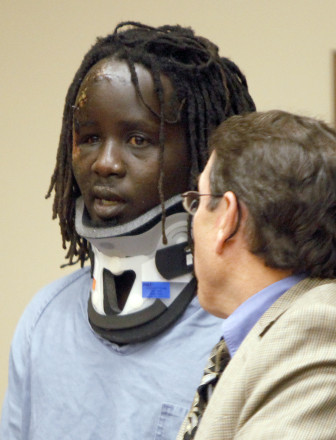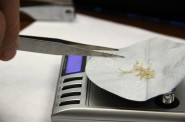Why Wisconsin Has Weak Laws on Drunken Driving
Legislators reject tougher penalties, even for repeat offenders. First of a series.
‘Let’s focus on things that work’
Neither the Tavern League nor MillerCoors took a position on the bills sponsored by Darling and Ott. “There just wasn’t a compelling reason one way or the other to lobby for or against them,” Stenger said.
The Tavern League did oppose a Democratic bill to mandate ignition interlock devices for all OWI offenses. Currently the devices are required only for second and subsequent offenses, first offenses with a BAC of .15 or more, and cases in which the driver causes injury or refuses a sobriety test.
Stenger said mandating these devices “isn’t working under current law,” since some drivers ordered to use them continue to reoffend. “Let’s focus on things that work.”
But Harris, of Mothers Against Drunk Driving, told lawmakers that “states with well-implemented interlock laws have seen significant reductions in drunk driving fatalities.” He cited research showing that 50 to 75 percent of convicted drunken drivers not required to use these devices continue to drive despite suspensions or revocation.

Edward Patrisio of Madison appears before a court commissioner in Madison in 2011. Patrisio, who is currently appealing his case, was convicted of one count of homicide by intoxicated use of a vehicle in 2012, for a four-vehicle crash in Madison. That same year, more than 26,000 drivers were convicted of a drunken driving offense. Photo by M.P. King / Wisconsin State Journal.
State data crunched by MADD shows that 2,122 of the 26,632 people convicted of OWI in 2012 were rearrested within six months for driving illegally.
Currently, 24 states either require or highly incentivize the use of interlock devices for all persons convicted of OWI. Increasing this number is MADD’s No. 1 legislative priority.
MADD also supports sobriety checkpoints, in which police stop drivers looking for signs of impairment. These checkpoints, which Harris calls “as much of an inconvenience to a sober driver as a red light,” are now used in 38 states.
Carpenter and Zepnick hope to introduce a bill next session to allow but not require municipalities to create these. They expect opposition from within both parties.
“People are afraid it’s going to be unfair or inequitable — targeting certain people or locations,” Zepnick said.
Fitzgerald expects continued discussion of ways to combat the state’s drunken driving problem, including an examination of current policies. One focus will be “gauging how successful our new treatment programs prove to be in comparison to other existing penalties.”
Ott supports the expanded use of treatment and diversion programs, saying “I recognize this is not just a matter of passing tougher laws.” But he thinks the laws do need to be tougher, and to that end “I plan on bringing some of these (bills) back next session, maybe do a few tweaks.”
Harris also urges a range of strategies to combat what everyone agrees is a difficult problem: “Just throwing the book at offenders, we’ve tried that, it doesn’t work.”
Drunken driving bills in the Wisconsin Legislature, 2013-2014 session
Bill Lueders is the Money and Politics Project director at the Wisconsin Center for Investigative Journalism (www.WisconsinWatch.org). The Center produces the project in partnership with MapLight.
The Center collaborates with Wisconsin Public Radio, Wisconsin Public Television, other news media and the UW-Madison School of Journalism and Mass Communication. All works created, published, posted or disseminated by the Center do not necessarily reflect the views or opinions of UW-Madison or any of its affiliates.
Political Contributions Tracker
Displaying political contributions between people mentioned in this story. Learn more.
- March 30, 2015 - Josh Zepnick received $50 from Tim Carpenter
Under the Influence
-
Wisconsin Is National Leader on Drunken Driving Test
 Dec 1st, 2014 by Kate Golden
Dec 1st, 2014 by Kate Golden
-
No Treatment For Many Drunken Drivers
 Nov 16th, 2014 by Sean Kirkby
Nov 16th, 2014 by Sean Kirkby
-
Advocates Say State Not Serious About Drunken Driving
 Nov 12th, 2014 by Bill Lueders
Nov 12th, 2014 by Bill Lueders

















I’ve said for years, that OWI laws should be three strikes style. Once you get to three, you lose your license for life. And there should be a free and easily accessible website of all three time offenders so private dealers and sellers don’t sell them cars. If they do, then they should also be held accountable.
Three OWI’s is pretty generous, but it would be possible. After all, how do people who oppose tougher OWI laws feel about pilots and school bus drivers who drink and drive? A vehicle is a vehicle and the same stringent laws should apply.
We’re talking deterrance? Why? Nothing deters an alcoholic from drinking. And that is what every repeat offender is, an alcoholic. They need help.
Why do we talk about this in a vacuum? The trend for drug enforcement has been slowly turning towards treatment as opposed to incarceration for years, why should drunk driving/alcholism be any different?
If you lose your license after 3 offenses, and you should, that would prevent many deaths.
The problem is that OWI’s are treated as a money making business. 2nd, 3rd, 4th, 5th AND 6th time drunk drivers can all too often get work release Huber privileges which net the local court systems over $175 a week for every week each offender serves that type of sentence. Compounded with repeat offenders knowing that is all the will happen to them as far a consequences of their taking careless risks is most of the problem. Start protecting the innocent public from these criminals (on both sides) and make a 2nd offense an automatic felony like most states have done for years.